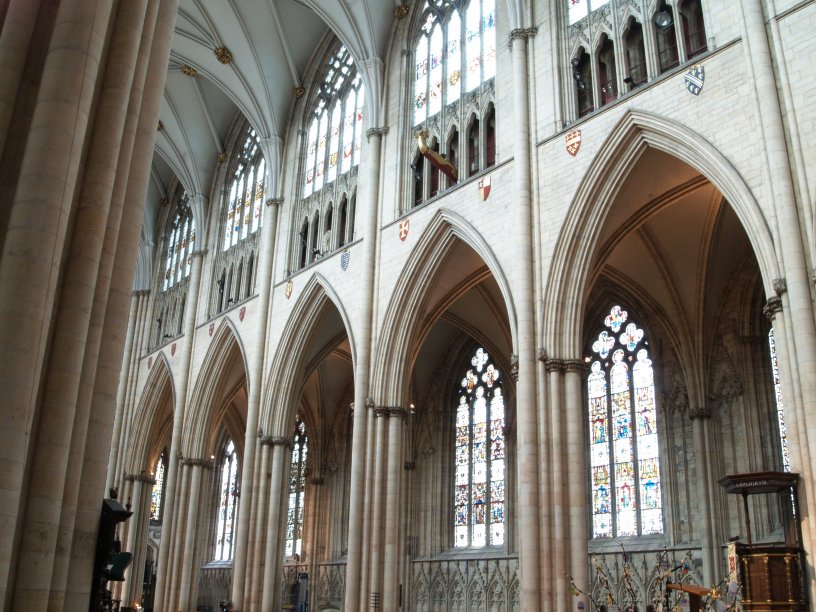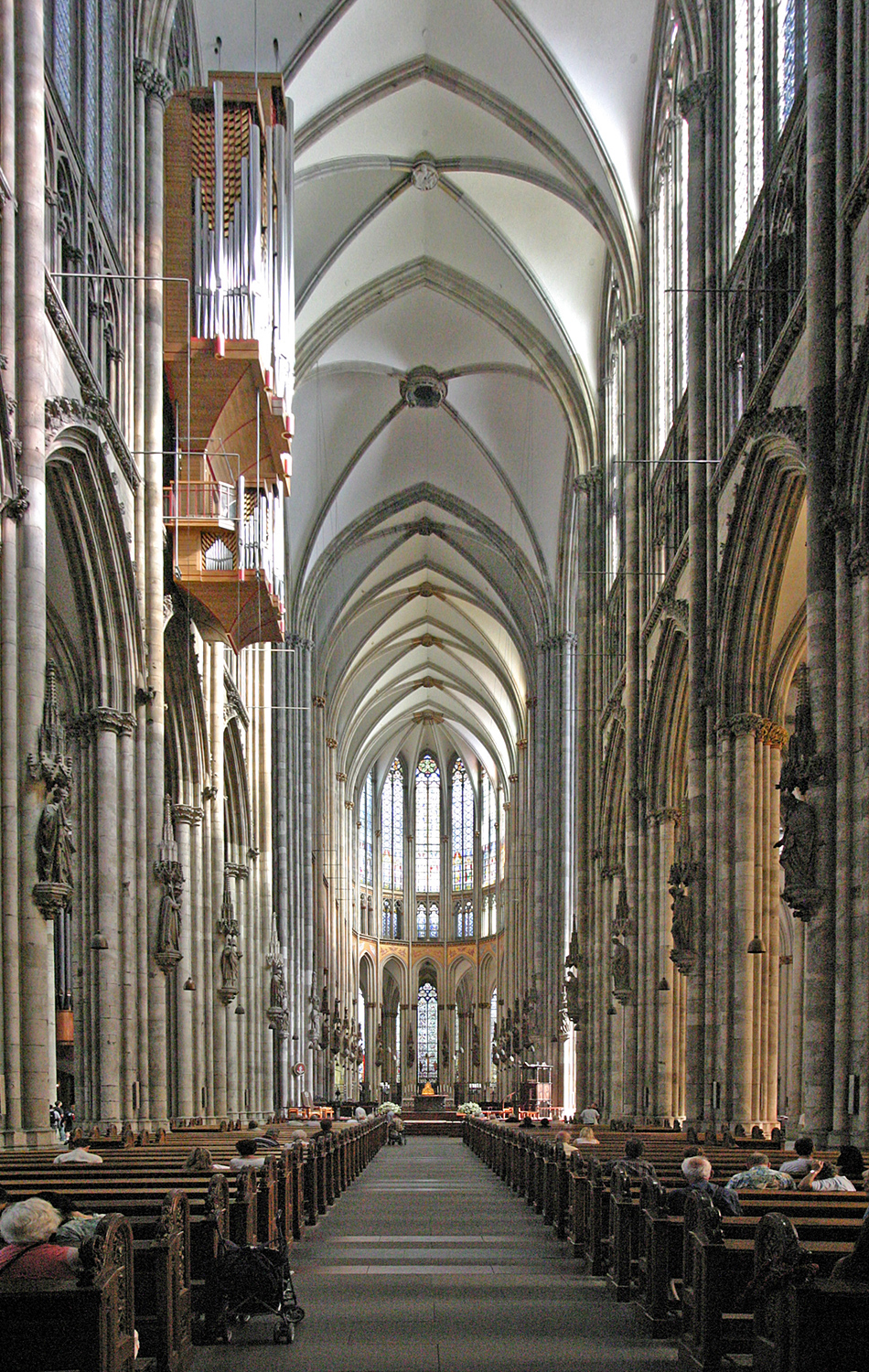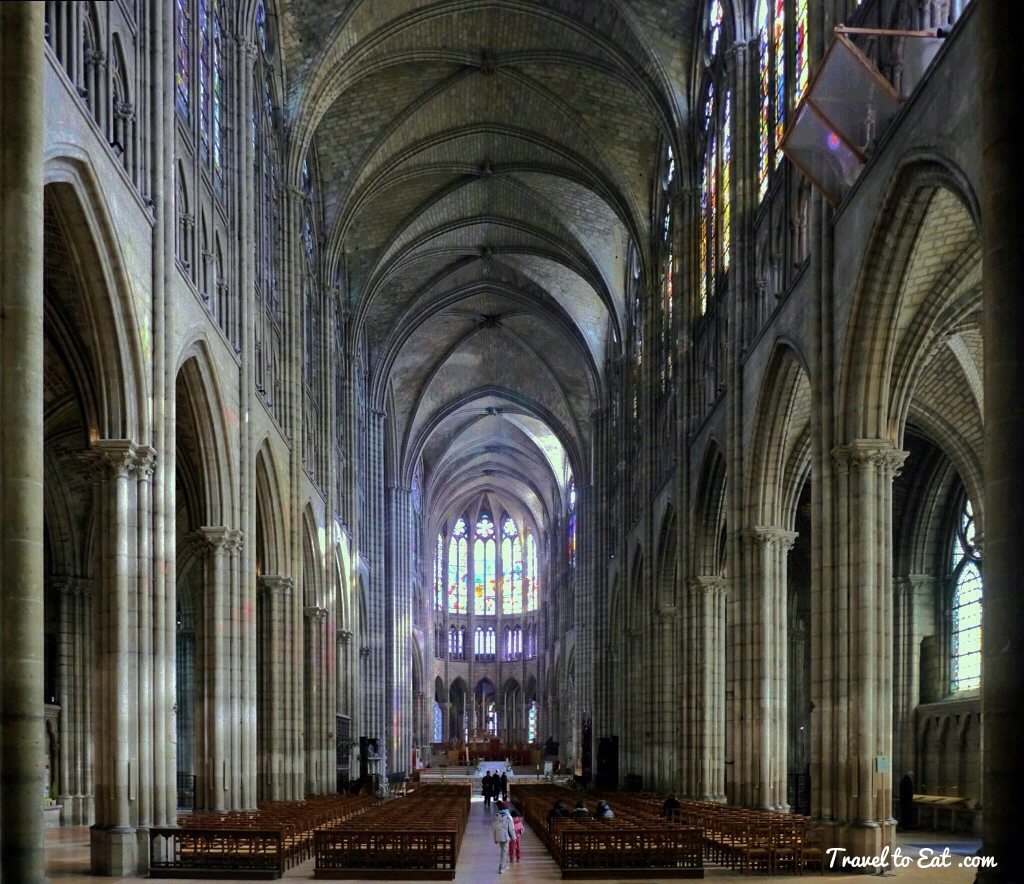The Gothic style has seven characteristics, if one approaches a church or a place that is Gothic, one can easily recognize it from one of the elements listed down below.
These are the famous startling grotesque gargoyles that we see on the Gothic cathedrals and churches. There are different types of gargoyles, some are water spouts, others have heraldic meaning and then there are the winged and fanged beasts designed to scare the evil spirits.
 |
| Gargoyles |
There are three dimensional detailed engraved sculptures in the triangular space of the pediment over the porch, that depicts Christ in glory surrounded by saints and angels. The Gothic architecture is highlighted as the first time that beauty and aesthetic values are incorporated into the building design.
If one can observe the interior of the cathedral, one can see the amount of light coming in from the two large stained glass rose windows specifically made and put in the north and south walls of transepts and between west front towers. These are filled with tracery and complex of stone, positioned to catch the best of the suns's rays, these create a kind of medieval magic lantern show with told bible stories.
 |
| Pointed Gothic Portal porch |
 |
| Lights and airy interior |
Here we can spot another element of the pointed arches Gothic design. looking at the top one can see a tracery window that has been designed by Thomas and Regnault de Cormont and Robert de Luzarches, that illustrated the division of window arches in two. Looking further down, we find large pointed arches that strengthen and compliment the whole structure of the interior. In between one arch and another we can see these windows that were designed purposely to have three figures that represent religious beliefs.
 |
| Pointed Arches |
Looking at the vaulted ceiling of the Cologne cathedral found in Germany, which was in progress since 1248 and halted in 1743. To exceed the ornament of the cathedral the ceiling was designed to be vaulted, as it is utilised to spread force of the weight from the upper floors. This also gives an impression of a higher ceiling.
 |
| The vaulted ceiling |
 |
| St. Denis cathedral, France c.1130 |
| Flying Buttress, St Vitrus cathedral in Prague castle |
One of the Gothic characteristics was its height, thanks to the buttresses use of technique they could build higher and taller, thus allowing the weight of the architecture to spread for a steady structure. This gave them more potential to reach up their beliefs to heaven.
 |
| Grand, tall Gothic Architecture |
References:
Exploring-castles.com, 2016. The Seven Key Characteristics of Gothic Architecture: From the Gargoyle to the Flying Buttress. [online] Available at: <http://www.exploring-castles.com/characteristics_of_gothic_architecture.html> [Accessed 2 June 2016]
Encyclopedia.com, 2016. Robert de Luzarches Facts, information, pictures | Encyclopedia.com articles about Robert de Luzarches. [online] Available at: <http://www.encyclopedia.com/topic/Robert_de_Luzarches.aspx> [Accessed 2 Jun. 2016]
Glancey, J. 2006. Architecture. London: DK
No comments:
Post a Comment